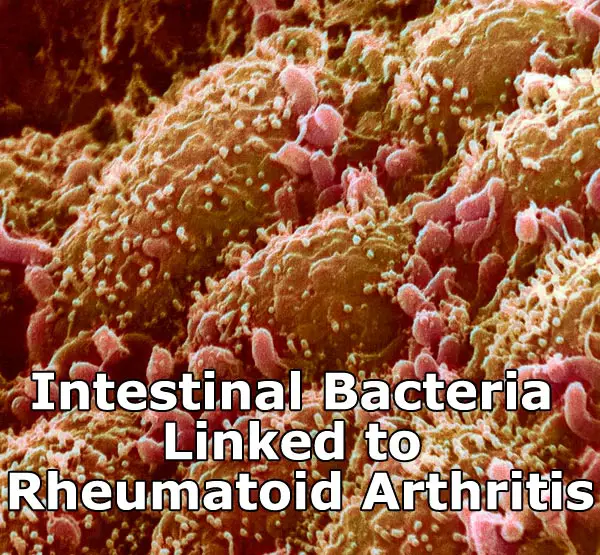The human body is a magnificent mechanism and although there were significant improvements made in the field of medicine, there are still certain things that remain a mystery.
Rheumatoid arthritis and gut bacteria are just two of the things related to the human body who still puzzle the entire medical world and recent discoveries show that they may actually be linked to each other, as odd as it may appear to some of you.
The Link between Rheumatoid Arthritis and Intestinal Bacteria
Put shortly, rheumatoid arthritis is an auto-immune disease that leads to inflammation in the bones of the patients, but which can also affect tissues and even organs in the most severe cases. Among the organs affected by rheumatoid arthritis you can find the kidneys and even the heart.
The fact that this type of arthritis is an auto-immune disease means that the patient’s body’s auto-immune system starts attacking its very own cells.
Up to the moment, these are the most important things known about rheumatoid arthritis, but scientists have not yet discovered what the exact cause that leads to the development of this disease is.
This is precisely why this very common disease is also considered to be one of the most mysterious ones as well.
Gut bacteria, on the other hand, is mysterious for other reasons. It has been long known that gut bacteria helps the human body in the process of digestion and that it can help it detect which germs can cause infections.
On the other hand, gut bacteria can be as dangerous as it is helpful, since some have started associating it with obesity and with certain allergies.
More recent discoveries are even more shocking though. Scientists have noticed that in the case of the rodents who had more intestinal bacteria, they also developed more so-called Th17 cells.
Apparently, it is exactly the gut bacteria that train the body to create more Th17 cells. As immune cells, these eventually lead to inflammation and scientists have noticed that rodents who were injected with gut bacteria developed various sorts of inflammations.
While these inflammations were not actual rheumatoid arthritis, this is an important sign that gut bacteria may actually be completely responsible for the development of rheumatoid arthritis.
How Did the Scientists Come to This Theory?
In the first stage, the scientists who approached the issue from this point of view only noticed that some of the rodents have more gut bacteria than others.
Furthermore, they observed that the level of Th17 immune cells is directly related to the amount of gut bacteria in the rodents. The way they discovered this was through observing how mice which were raised in sterile environments had much less Th17 bacteria.
When the same scientists wanted to see the relationship between gut bacteria and rheumatoid arthritis in human patients, they noticed that no less than 75% of the subjects who accepted to be tested had both large amounts of gut bacteria (P Capri, to be exact) and had also developed rheumatoid arthritis (and it is also important to note the fact that they did not know they were suffering from the disease up to the moment).
Since they could not inject healthy human patients with gut bacteria to see what happens, they did it to rodents and what they noticed may have been the most important recent discovery in the field of arthritis: rodents who had been injected with the gut bacteria started developing inflammations around the body.

Further Applications of This New Theory
Although this is just the beginning of this path of study, it is of the highest importance because it may lead to the development of new and better treatment. Up to the point, various types of drugs have been used to treat rheumatoid arthritis (including large amounts of aspirin), but none of them actually cured it.
Furthermore, some of the drugs currently used in the treatment of this auto-immune disease are actually dangerous. Remicade, for example, is one of the rheumatoid arthritis drugs that have been linked to various forms of infection and even to cancer.
Better treatment may mean that the future of those suffering from this auto-immune disease will be much better. We may not be far from the moment when the actual cause that leads to rheumatoid arthritis will be discovered and we may not be far from the moment when other medical mysteries will be elucidated.
Maybe the future of medicine is a much brighter one for the patients who are still out there, hoping that one day a cure will be found for their medical condition and they will stop experiencing their symptoms.